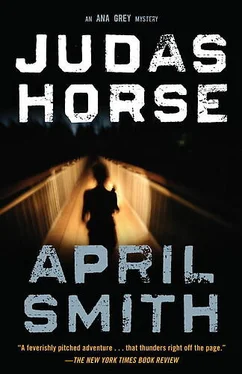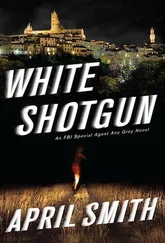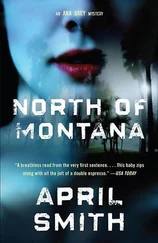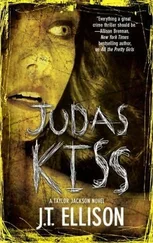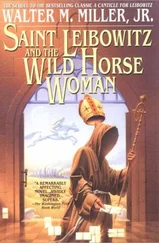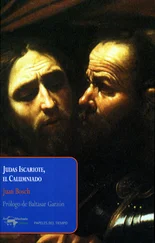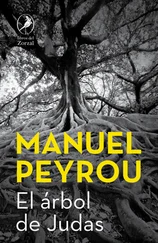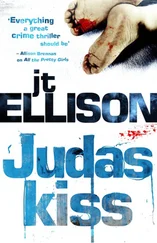Donnato and I are both patched in on our cells to L.A.
I start the debrief. “Julius Emerson Phelps was born in Ohio—” Donnato: “Based on what evidence?”
“There was a flying ear of corn on his cap. I learned in uc school that when you see a flying ear of corn, ask.” “Was it red and yellow, with wings?” Jason pipes up.
“How do you know?”
“That’s an old barn sign. The DeKalb Company is a big seed grower. The flying corn is the logo; it used to be on barns all over when I was growing up. But DeKalb is based in Illinois.” “No,” I say patiently. “The subject plainly stated that he was born in DeKalb, Ohio, and picked corn when he was in high school. He provided a detailed description of lying on a mattress on a contraption with wheels—” This being his first counterterrorism case, Jason is anxious to make everything right on the status report he will send to headquarters in Washington, D.C.
“Sorry, ma’am, but it doesn’t track.”
“Which doesn’t?”
“He might have picked corn in Ohio, but the DeKalb Company is based in Illinois. They have a corn festival every year. I won the Diaper Derby when I was two years old.” Donnato and I exchange a look and say nothing.
Jason fumbles. “I know. The Diaper Derby. It’s kind of embarrassing.” Another pause.
“Ana?” Donnato asks finally. “Are you sure you heard Mr. Phelps correctly?” I glare at him.
“I heard it right.”
“Run Megan Tewksbury and Julius Emerson Phelps through NCIC,” Donnato instructs the kid. “Search the databases for birth certificates, Social Security numbers, driving records, military records, and arrests for Phelps in Illinois and Ohio.” We hang up and sit in silence in the motel room, where the once-savory remains of Caribbean takeout are starting to smell like a back street in the Yucatán.
“I need you to trust me,” I say after a while. “Why do you second-guess me in front of a rookie?” “I’m not second-guessing you.”
“You are. Not only on Megan as a source but on a simple piece of intel, too. Did the subject say Ohio or Illinois ?” My voice is rising. My heart is beating fast.
“Look—” He takes off his reading glasses and rubs his forehead.
“Here’s the thing—”
“I know the thing. You shot a guy. A lot of people didn’t share that judgment call, or the way it worked out with OPR. So you’re feeling…scrutinized.” “But not by you?”
“Not by me,” says my partner, and his eyes are soft.
Against a wash of middle-aged do-gooders perking along through the lobby of the convention hotel, with their important name tags and goodie bags of giveaways, radical leader Bill Fontana stands out like a gangsta hit man.
He has shaved his head since our most recent surveillance photos, which makes his cheekbones seem wider, and ears, with multiple earrings, stick out like a Chihuahua’s. Tall and muscle-bound, he is dressed in black, with heavy work boots meant to rip the shit out of laboratory doors. Despite a throng of groupies, he looks less like a media star and more of what he really is — an ex-con. You can spot it a mile away. He’s got what they call a “joint body”—the overdeveloped torso, the bullying prison strut.
I am not here alone. Undercover detectives from the Portland police department have mixed with the crowd, some posing as reporters to document the faces. You can bet if these good liberals knew they were being covertly photographed, they’d scream violation of civil rights. To protect my identity, the local cops do not know I exist; if my face surfaces in their reports, we’re doing something right. Donnato, disguised by a couple of days’ worth of beard, gold-rimmed glasses, and a beat-up denim jacket, is somewhere nearby.
This is not one of your great moments in espionage. All we did was walk through the door. The hotel is on a strip near the airport. You go up the escalator to the convention suite and buy a ticket for thirty bucks. If it’s easy for us, it is easy for FAN, whose members, you can bet, are also working the room.
These people — excuse the expression — are sitting ducks for recruitment by terrorists. The affable retirees with big bellies and gray beards are not likely to be fashioning Molotov cocktails in their home entertainment centers during the commercial breaks, but the young guard, the lean and hungry male youth who gather around Fontana, with thin grasping fingers, and tattoos, and “I’ve-been-up-on-speed-for-thirty-six-hours” hair, just want to be bad — any kind of bad. Well, so does Darcy DeGuzman in her ratty purple parka.
“I’m a great admirer of yours,” I tell Fontana, shaking his hand. “Going to prison, that was really brave.” “It isn’t brave. It’s the only choice. The earth is our only home and fighting for its constituency is a sacred war.” I give him a bedazzled smile and hold his brown eyes. “Bill, tell me how to fight and I’ll do it.” “Create chaos,” he advises. “On the edge of chaos, that’s where change begins.” I’m glad that I am close enough to get a good look. His eyes are at once vacant and hostile.
“Radical resistance comes in lots of ways,” he says. “Walk through these halls.” He indicates the booths for farm sanctuaries, and organizations that save ducks from having their livers turned into foie gras. “You’ll find your path.” Not surprisingly, given his glib style, Bill Fontana has a handler, a pretty Asian woman in a nice suit, who maneuvers him toward a couple of print reporters who ask about the story in Willamette Weekly about corruption at the BLM.
“Our wild horses are not for sale for the personal profit of government drones,” Fontana says as their pens fly. “We refuse to allow free spirits of nature to become pawns in an elitist scheme to benefit the corporate ranching interests.” Donnato must be watching, because my cell vibrates.
“Fontana’s on in fifteen minutes and the ballroom’s packed,” he reports.
“How’s the crowd?”
“Tense. Something’s up. I’m hearing Herbert Laumann from the BLM is going to show.” “Why?”
“He wants to debate. About the wild horses.”
“That’s not smart.”
“Your hazelnut friends are in the food aisle,” Donnato says, and we click off.
In spite of myself, the fragrance of rice soup and fried lentil crackers draws me to the food concessions. Among them is a booth for Willamette Hazelnut Farm, and sitting at the table behind golden piles of hazelnut brittle is Megan Tewksbury, stacking flyers.
“Megan! It’s Darcy!”
She glances up and breaks into a smile. Then a big warm hug.
“You were awesome at Omar’s the other night,” she gushes. “That was thinking on your feet. You liberated over three hundred dollars.” “Hey, the cash register was open.”
“The mustangs will benefit, I promise you that.”
“What are you doing?”
“Organizing. Julius is too impatient for this kind of stuff.” Megan is more fluffed up than she was at the bar, wearing her business attire: a white shirt with an Indian vest embroidered with tiny mirrors, her hair loose and frizzy, lots of chunky silver jewelry.
I pick up a flyer. “Save Our Western Heritage” appears above a photograph of the most stirring animal I have ever seen, “Mesteno, legendary Kiger stallion.” His ears are erect, his neck strong, and he has a fine muzzle and intelligent eyes. He is dun-colored, with darker legs, and the musculature of his body is athletic. His long flying mane and tail remind me of a children’s book illustration.
“This is a mustang? He is stunningly beautiful.”
“That’s because he’s free.”
Читать дальше
